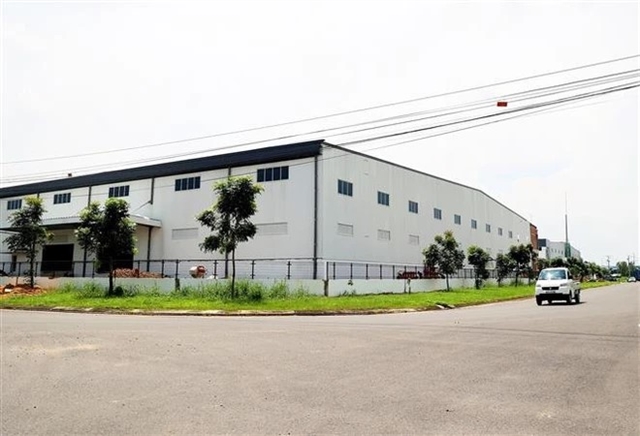 Economy
Economy

 |
| An industrial park located in the southern province of Bình Dương. — VNA/VNS Photo Hồng Đạt |
HÀ NỘI — Business communities have shown tepid reception towards yearly lease payments for land use to the State, a notable change in the recently revised Land Law, said industry insiders and economists.
The scope of the amendment covers economic organisations, individuals, overseas Vietnamese and foreign-invested companies currently leasing land with a one-time payment for the entire lease period.
Previously, businesses had only one option: a one-time payment for the entire lease period. The amended law now allows businesses to pay annually. Those who already made their one-time payments for the lease are offered the option to switch to the new system.
For reference, Việt Nam's 2013 Land Law permitted businesses and individuals to switch from annual land lease payments to a one-time payment for the entire lease period while the reverse conversion from a one-time payment to annual payments was not made available.
Economists supporting the amendment said the provision better supports businesses and adjusts revenue to favour long-term benefits from land use. Paying annual land-use fees can help investors ease financial burdens during the initial project implementation phase.
In addition, it provides an opportunity to adjust property prices and enhance the quality of completed products.
A representative from the Vietnam Real Estate Brokers Association (VARS) said there is potential for increased revenue for the State through the added value of land over time, instead of relying on one-time payments. However, the timing of land-use fee adjustments and a reasonable calculation method should be put in place to convince businesses to make the switch.
Nguyễn Anh Quế, chairman of G6 Group, a property developer based in Hà Nội, said while the new option may benefit struggling businesses that cannot afford a one-time land-use payment, those who already paid using one-time payment method see few reasons to hop on the annual payment method.
He said businesses won't be getting refunds for the amount paid. Instead, it will be deducted from the lease term. In addition, as land use fees almost certainly will increase over the years, the amount paid under the annual method will be higher than the one-time method.
Phạm Đức Toàn, CEO of EZ Property, an office space broker in Hà Nội, said the new option essentially offers something most businesses do not want as most businesses prefer and request the one-time payment method.
Toàn said the value of land is significantly lower when paid annually compared to a one-time payment. For example, when a business made a one-time payment, the land was accounted for as fixed assets, eligible for bank collateral. However, with annual payments, only the assets owned by the business on the land can be mortgaged. Additionally, annual land lease payments, which tend to increase, will introduce additional financial risks to business operations.
Economist Đinh Trọng Thịnh said if annual land lease fees increased significantly, it could disrupt the financial and business plans of companies. In addition, businesses may worry about the restrictions imposed on the land when paying annually compared to a one-time payment.
He urged the Government to carefully study and review the pros and cons of implementing the new method, which will be essential in establishing reasonable legal policies that ensure sustainable and stable economic development.
The Land Law (revised) has 16 chapters and 260 articles. It will be effective from January 1, 2025, except for some particular articles.
Notably, it removes regulations on the Government's land price framework while stipulating principles, foundations, and methods of land pricing. Under the revised law, a land price list will be made on an annual basis. The land price list will be first announced and applied from January 1, 2026, and will be adjusted and supplemented from January 1 of the following year.
Meanwhile, the authority of land pricing will be given to the heads of the People’s Committees at the district level, according to the law. — VNS




